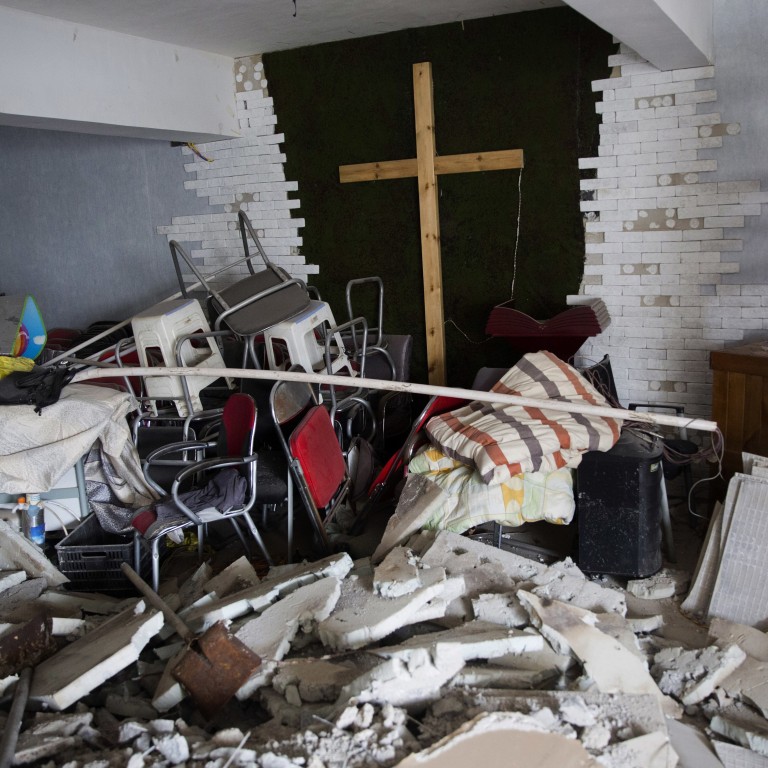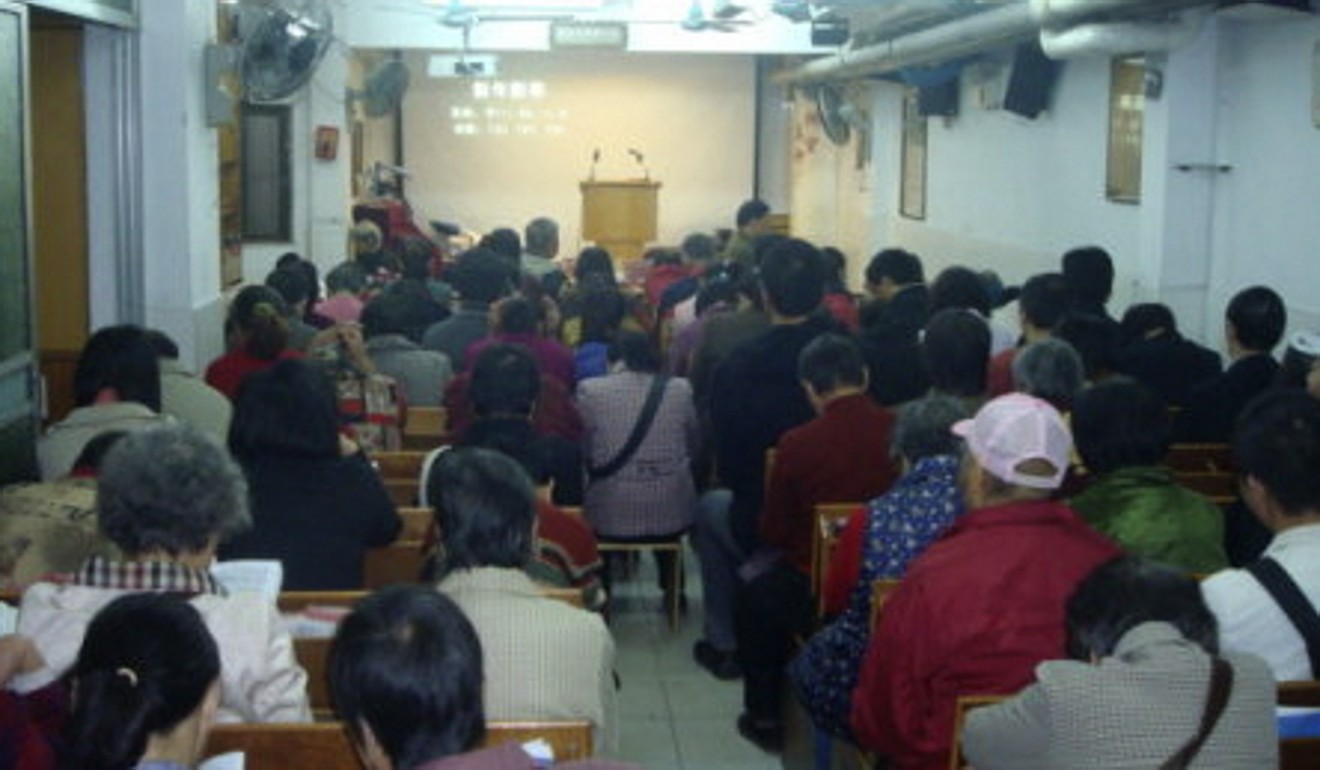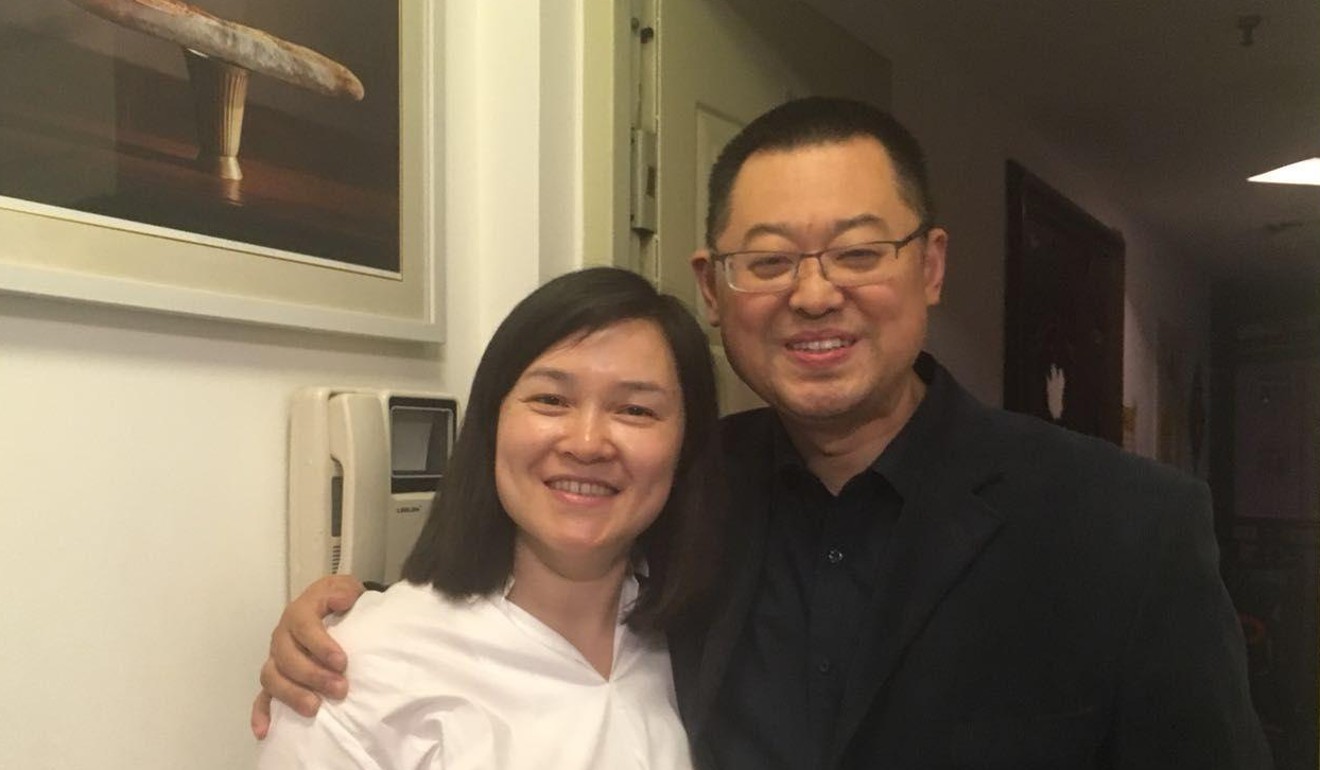
Hundreds of Hong Kong church-goers set to wear black in show of support for Christians facing crackdown in mainland China
- Action is led mostly by five progressive Christian groups in city, who stress move is more symbolic than political
- Organisers want to spread the word abroad on state’s heavy-handed policies towards religion
Hundreds of Hong Kong church-goers are planning to turn out in black for two Sundays in an unprecedented show of solidarity with fellow Christians facing an intense government crackdown in mainland China.
Five progressive Christian groups and 100 individuals in the city are behind the defiant call to action, urging believers to attend their church services on December 23 and 30 in black outfits, as “Christ is being persecuted ... the church in China is being persecuted”.
By Saturday night, 352 people had signed an online petition to that effect and pledged to join the campaign, according to Phyllis Luk Fung-ping, co-founder of Mission Citizens, one of the five organising groups.
100 Christians snatched in overnight raids on underground Chinese church
The show of support is in response to a crackdown by mainland authorities on at least two prominent underground Chinese churches just two weeks before Christmas.
On December 9, the unregistered, 500-member Early Rain Covenant Church in Chengdu was raided by authorities who detained more than 100 worshippers and forced them to promise they would not attend any religious gathering that was not authorised by the state.
Wang Yi and Jiang Rong, the couple who started and led the church, have been held on charges of inciting subversion of state power.

Six days later, the 18-year-old Rongguili Church in Guangzhou – the largest unregistered church in south China, with some 5,000 weekly worshippers – was shut down by local officials who interrupted a children’s Bible class and confiscated tens of thousands of religious books.
The raids are part of a broader escalating crackdown on house churches and unsanctioned Christian activities in recent years, as Beijing grows more wary of political activism and opposition to the state through religion.
The campaign has been bolstered by amendments to the Religious Affairs Regulation that give grass-roots officials more power to act against churches and impose tougher penalties for “unauthorised religious gatherings”.
Members of unofficial Chinese church vow to defy crackdown and keep meeting
“Believers on the mainland and in Hong Kong are both part of Christ’s body,” Luk said. “When one part of the body is hurt, how can the others remain indifferent?”
However, she stressed that her group was seeking to make a symbolic statement rather than a political one.
“It would be too naive to believe our act can shake mainland authorities and bring immediate improvements,” Luk said. “Keeping the action away from politics might allow participants to persist for a longer period because in Hong Kong, it is conventional for churches to stay out of political issues.”
The message had reached some 47,000 viewers in the five days since it was published on Facebook on December 16, Luk added, although the city’s bigger churches had not joined the campaign.
The city has about 500,000 Christians and at least 1,500 churches, according to the Hong Kong Christian Council.
Reverend Lau Chi-hung, convenor of another organising group, the Hong Kong Christian Fellowship of City Concern, said the action aimed to “wake up” more Christians in the city.
“Some churches might find it more helpful to have direct communication with religious officials on the mainland instead of speaking up in public,” Lau said. “Others may be concerned about jeopardising their work across the border if they are too critical.”
Santa Claus won’t be coming to this town, as Chinese officials ban Christmas
Other than wearing black, a colour used to commemorate the passion of Christ, organisers also called on believers to pray for both the “persecuted and persecutors”.

Lau said religious freedom on the mainland had been deteriorating since at least 2014, when forced demolition of churches spread from Zhejiang to other provinces. Over the past year, Henan was considered the worst-hit area.
“What people in Hong Kong can do to help is very limited,” Lau said. “But we have to continue to wake people up. There can be change only when the majority is awake and go on to press authorities.”
There can be change only when the majority is awake and go on to press authorities
The fifth group, Christians for Hong Kong, was established in 1987 by a group of believers who supported the pro-democracy camp. They were prompted by social debates on reinstating stringent control on protests and introducing direct elections for seats in the Legislative Council.
China shuts leading underground Christian church, third this winter
Ying Fuk-tsang, director of the Divinity School of Chung Chi College at Chinese University, said Hong Kong should continue to closely monitor what mainland churches were experiencing and spread the word abroad as the state’s heavy-handed policies were expected to last and intensify.
“Christianity is the largest religion on the mainland as the number of believers has increased by more than 60 per cent from some 23 million to 38 million people over the past decade, according to official data,” Ying said.
“Beijing has considered it an ideology that can threaten national security and therefore even symbols of Christianity, such as decorations for celebrating Christmas and New Year scrolls carrying religious elements, are banned. Without Hong Kong, much of such news won’t be reported to the world outside.”

